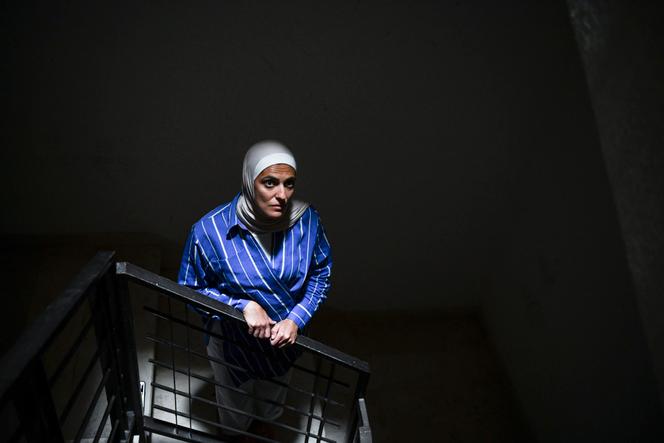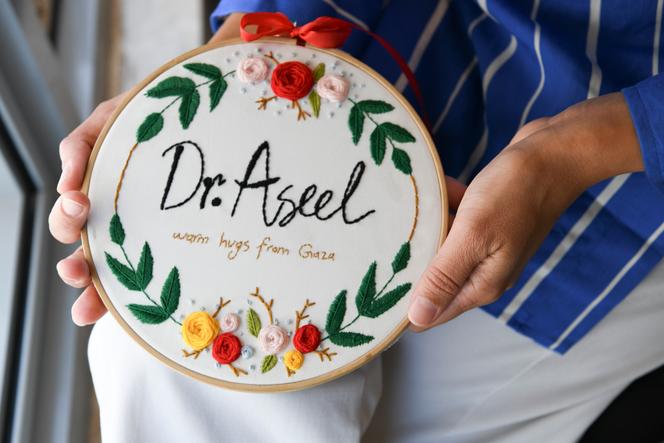


Outraged, like her fellow Jordanians, by the brutality of the operations carried out by the Israeli army in the Gaza Strip since the bloody attack by Hamas on October 7, Acil Jallad, a 40-year-old gynecologist, refused to remain powerless. From March to April, she spent a month in the Palestinian territory, treating women and delivering babies. What she saw hasn't left her since she returned to Amman. She described "the incessant noise of the drones, the bombings in the distance, the stench of garbage that is no longer collected, the destroyed roads where children walk barefoot." But also, "the resilience of Gazans." "Women express their exhaustion with the conflict. But they project themselves into the future, talk about their plans for when the war will end."
Less visible than the wounds caused by the strikes, women's health needs "are huge," she said. "Some women suffered from hemorrhage, and in some cases, we had to remove their uterus, a procedure that could have been avoided in another context. Others had infections that we couldn't always diagnose, due to the lack of tests available. Women who were several months pregnant had not had ultrasounds because of the conflict and repeated displacements," explained the practitioner, who worked in the field hospital of the US NGO International Medical Corps, in the so-called "humanitarian" zone of Al-Mawasi, on the seafront west of Rafah.
This was shortly before the Israeli invasion on May 6 of this town on the border with Egypt, to which civilians had been encouraged to flock, believing they would find refuge there, before having to flee again.
Jallad has kept in touch with Gazans: "It sometimes takes several days to get news, via messages." When she was there, around 10 deliveries were carried out every day. "Vaginal deliveries are carried out without painkillers. To ward off the pain, during labor some women pray, for their dead, for family members scattered across the enclave."
The usual advice given to pregnant women, such as a healthy and varied diet, is incongruous: "People have been surviving for months on canned food and without drinking water. Women who already have children feed them first. Anemia is common. There's no rest after giving birth, back in a tent shared with the extended family or in an overcrowded shelter."

Two Gazans particularly moved her: A 17-year-old girl who came to give birth, "pregnant when she was still a child and already a widow because of the war. This mother, alone with her baby, was returning to her family. Yet she was determined, saying: 'I'll make it, I'll raise my son and I'll tell him about his father.'" And Youssef, an 11-year-old boy, among the children with whom she spent time in the evenings: "He was wounded twice, at home and then in the hospital where he was being treated. With one leg amputated, he needed surgery but refused, paralyzed by fear." The gynecologist helped calm him down.
You have 15.44% of this article left to read. The rest is for subscribers only.
